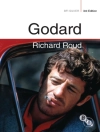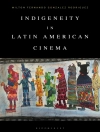Throughout its history, animation has been fundamentally shaped by its application to promotion and marketing, with animation playing a vital role in advertising history. In individual case study chapters this book addresses, among others, the role of promotion and advertising for anime, Disney, MTV, Lotte Reiniger, Pixar and George Pal, and highlights American, Indian, Japanese, and European examples. This collection reviews the history of famous animation studios and artists, and rediscovers overlooked ones. It situates animated advertising within the context of a diverse intermedial and multi-platform media environment, influenced by print, radio and digital practices, and expanding beyond cinema and television screens into the workplace, theme park, trade expo and urban environment. It reveals the part that animation has played in shaping our consumption of particular brands and commodities, and assesses the ways in which animated advertising has both changed and been changed by the technologies and media that supported it, including digital production and distribution in the present day. Challenging the traditional privileging of art or entertainment over commercial animation, Animation and Advertising establishes a new and rich field of research, and raises many new questions concerning particular animation and media histories, and our methods for researching them.
विषयसूची
Chapter 1 Introduction to Animation and Advertising.- I: Revisionist Histories.- Chapter 2 George Pal’s ‘Cavalcade of Colours, Music and Dolls’: 1930s Advertising Films in Transnational Contexts.- Chapter 3 Sponsored Silhouettes: Lotte Reiniger’s ‘useful’ films in Britain.- Chapter 4 Magic Highways and Autopias: Disney and automobile advertising.- II: Intermediality.- Chapter 5 Animation and Commercial Display in Britain during the 1920s.- Chapter 6 Live Electrically with Reddy Kilowatt, Your Electrical Servant.- Chapter 7 ‘A Very Flexible Medium’: The Ministry of Information and Animated Propaganda Films on the Home Front.- III: Brands.- Chapter 8 Animation Across Borders: Schicht Fat Factory and its Transmedia and Transnational Advertising Strategies.- Chapter 9 Just Do It, Impossible is Nothing: Animation and Sports Commercials.- Chapter 10 ‘Don’t Mind Me, I’m Just a Dermatophyte’: The Use of Animation in Direct-to-Consumer Pharmaceutical Television Advertising.- IV: Television.- Chapter 11 Beyond Anime? Rethinking Japanese Animation History through Early Animated Television Commercials.- Chapter 12 The ‘Quasi-Artistic Venture’: MTV Idents and Alternative Animation Culture.- Chapter 13 ‘Stupid Little Stories’: Television Interstitial and Advertising Style in the Professional Culture of Indian Animation.- V: Digital and Contemporary.- Chapter 14 Promoting Computer Graphics Research: The tech demos of SIGGRAPH.- Chapter 15 ‘Movin’ to a different beat’: Commercial Pixar and the Simulated Ordinary.- Chapter 16 ‘Feel Everything’: Animation, Advertising and Affect in Cinema and Television Idents.
लेखक के बारे में
Malcolm Cook is a Lecturer in Film at the University of Southampton, UK. His book Early British Animation: From Page and Stage to Cinema Screens was published by Palgrave Macmillan in 2018. He is currently researching the role of advertising in the history of animation, and has published several chapters on this topic, which appear in The Animation Studies Reader (2018) and Aardman Animations: Beyond Stop-Motion (forthcoming).
Kirsten Moana Thompson is a Professor of Film Studies at Seattle University, US, and writes on animation, color and Pacific studies. Recent work includes the material color history of Disney and Faber Birren, advertising in Times Square, Ludwig Von Drake and the Disney promotional film, Egyptian sponsored film and the intersectional aesthetic surfaces of Moana. She is currently working on several new books, including Color, Visual Culture and American Cel Animation and Bubbles.












